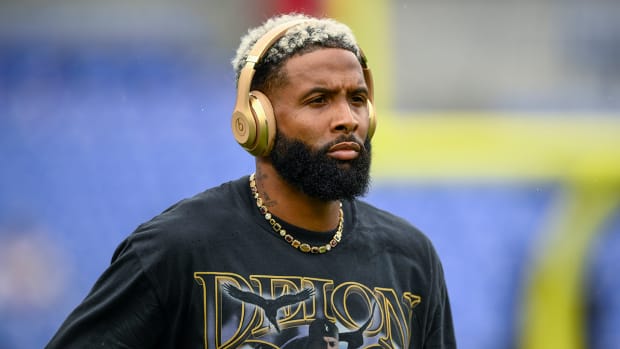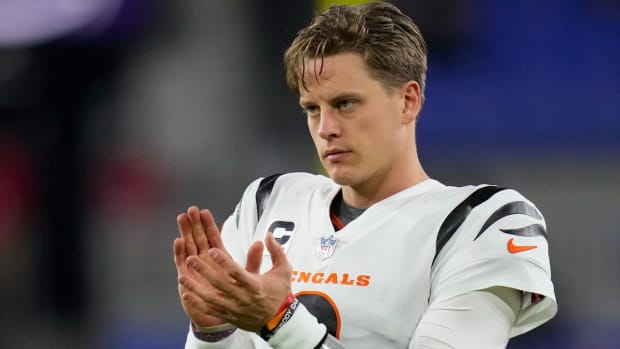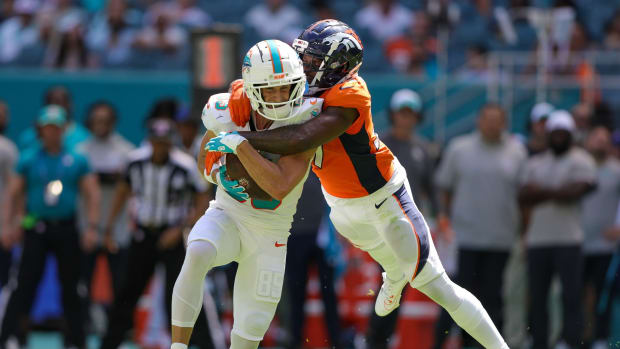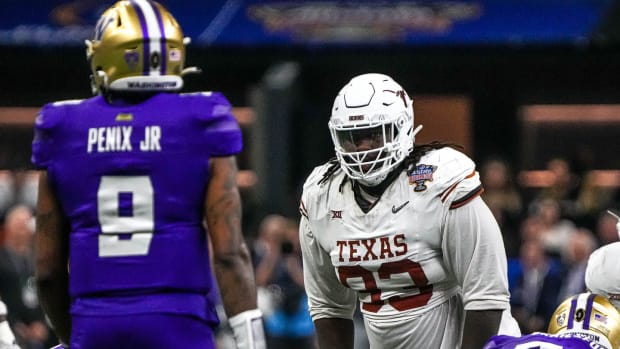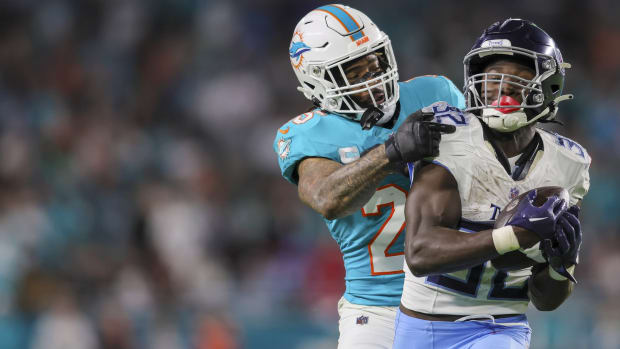There isn’t a single person with any kind of awareness of who Tua Tagovailoa is, and more importantly, what he represents, who thinks the Miami Dolphins quarterback will play hardball with the franchise during negotiations for a multi-year deal.
Skipping OTAs — like former Dolphins center Connor Williams did — or holding a hold-in like Christian Wilkins did during training camp is how business gets done in the NFL from a player standpoint.
But quarterbacks live by different rules, and Tagovailoa’s too image-conscious to ruffle any feathers if there's a need to twist an arm.
But that doesn’t mean staying away or holding in shouldn’t be Tagovailoa’s course of action if the Dolphins drag out negotiations with the 2023 AFC starting quarterback for the Pro Bowl, or give him what he and his team feels is a lowball offer on a multi-year extension.
At the bare minimum, Tagovailoa and his camp should tell the Dolphins he’s not participating in the 2024 preseason if years and guaranteed money aren’t added to his contract.
The bottom line is that a deadline for a new deal should be set by Tagovailoa and his camp.
OFFSEASON IS TIME FOR PLAYERS TO DO BUSINESS
It’s always been said by teams, players and their agents, the offseason is the time to do business, so Tagovailoa’s camp should be negotiating, pursuing, lobbying, and maybe even stron-arming the Dolphins for an extension that guarantees him $100-plus million, which is the median price tag for a multi-year extension to an upper-echelon NFL starting quarterback.
When, or better yet ... IF the deal gets done, the fifth-year quarterback will become the highest-paid player in franchise history, even if the deal’s on the cheaper end.
The largest contract the Dolphins have ever handed out was the $120 million extension they gave Tyreek Hill when the All Pro-receiver was acquired from Kansas City in a trade that wasn't finalized until a new deal was completed.
And that deal leapfrogged the six-year, $114 million deal the Dolphins gave All-Pro defensive tackle Ndakukong Suh back in 2015.
Tagovailoa eventually will be the new bar, which explains why this deal will take some time.
Let’s be ultra conservative, and say the Dolphins sign Tagovailoa to a multi-year extension that pays him $40-45 million a season, like the New York Giants are paying Daniel Jones ($40 million), or the Atlanta Falcons just gave Kirk Cousins ($45 million) as a free agent. If that’s the case, the NFL’s 2023 passing yardage leader will walk away with more guaranteed money $100-120 million than most Pro Bowlers see in their lifetime.
And even if Tagovailoa and the Dolphins don’t agree to a contract, he’ll make $1,363,000 per game playing on the fifth-year option, which guarantees him just under $23.2 million. That's a significant raise from last year’s salary, which paid him $278,733 per contest on the fourth year of his rookie deal last year.
In an ideal world, from the organization’s standpoint the Dolphins would have Tagovailoa play on the fifth year option, giving him another season to improve, prove he's durable again, and clean up his game, before making him the highest-paid player in franchise history.
But in that scenario Tagovailoa is assuming all of the risk considering players would prefer to not play on expiring contracts.
General Manager Chris Grier already warned this could carry into training camp, and maybe even the start of the regular seasons.
“There is no timeline on it,” Grier said at the NFL Combine. “These are deals that very rarely come together quickly. There are a lot of pieces and moving parts.“
THE CHRISTIAN WILKINS EXAMPLE
The usual way players motivate organizations to meet their timelines, and potential salary demands is by not participating in the offseason program, and potentially sitting out training camp practices, and exhibition games.
Tagovailoa is clearly too nice of a person to do that, but if his representatives decide the Dolphins are stalling, or not coming correct with a fair offer, they might need to force his hand.
Wilkins, who was in a similar situation to Tagovailoa being asked to play on his fifth-year option instead of receiving a multi-year deal, sat out all but the first two weeks of training camp. He skipped Miami’s joint practices and all of the preseason, waiting for a satisfactory offer that never came.
When negotiations broke down, Wilkins eventually returned to practice and played in all 17 of Miami’s regular season games. But he did his part to apply pressure, respectfully.
At some point, Tagovailoa might need to do the same, reminding the Dolphins the same thing they remind players every offseason, which is that football isn't just a sport. It's a business.
